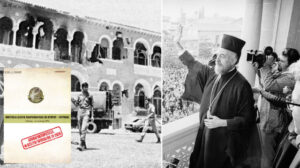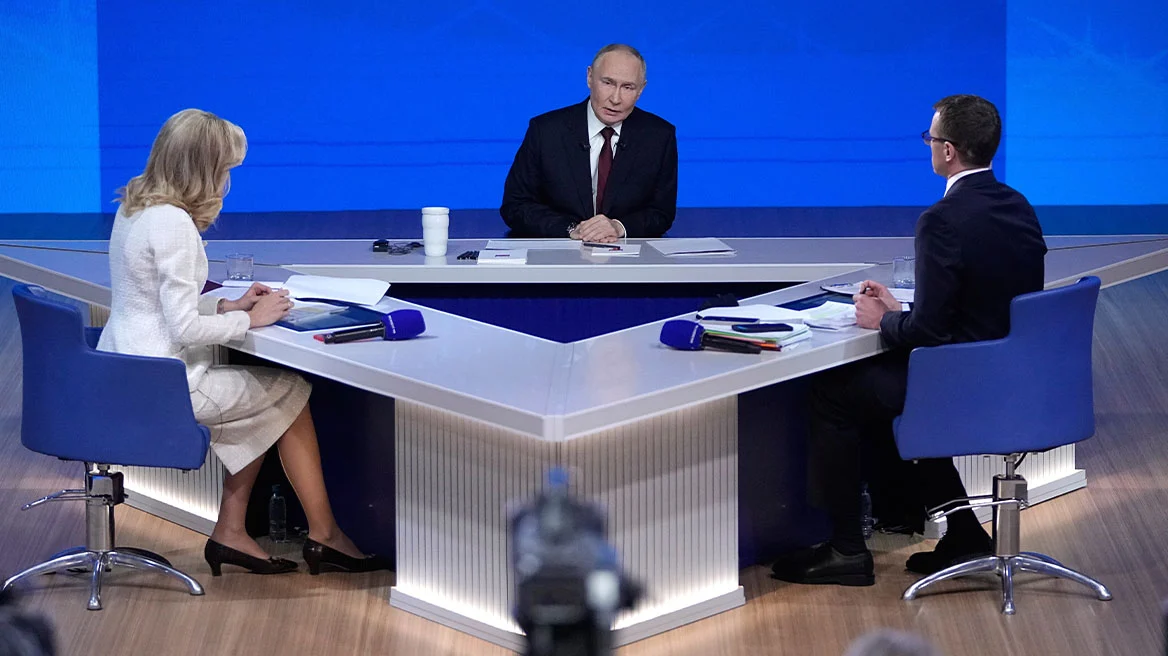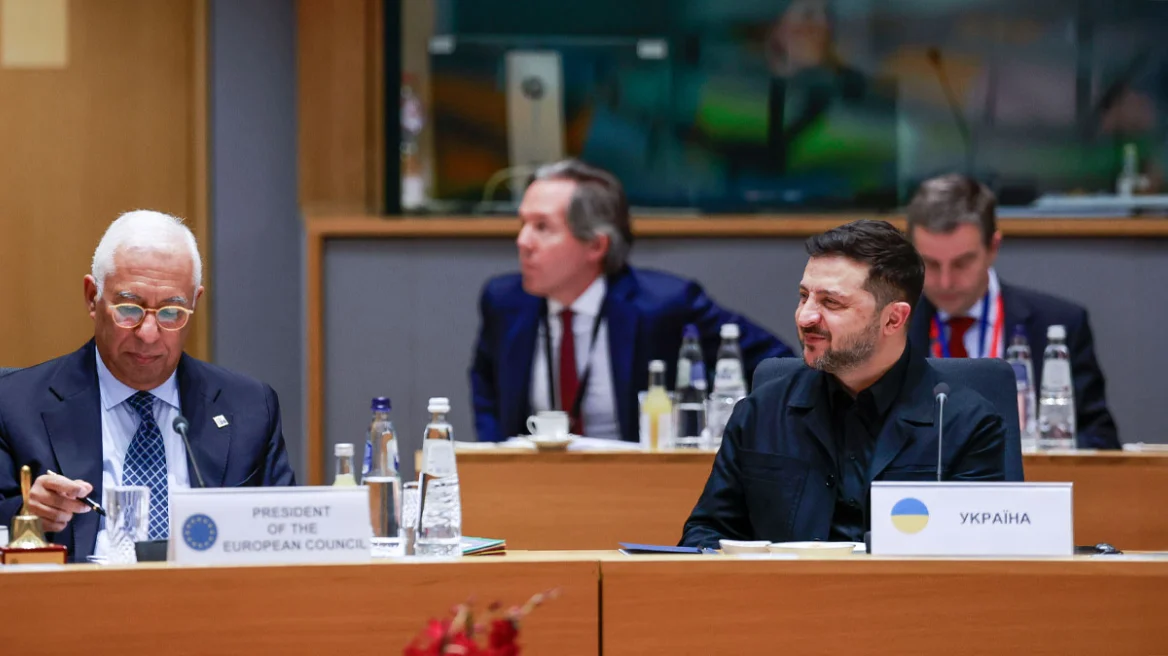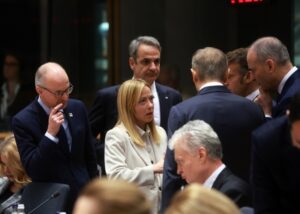The historic, undoubtedly significant, release and declassification of highly confidential documents from a crucial two-month period—July & August 1974—from EYP’s archives offer a comprehensive view of everything that transpired during this critical and dark time for both Greece and Cyprus. It provides a clearer historical understanding from the coup against Archbishop Makarios to the “Attila II” operation.
These specific files, essentially daily reports with corresponding commentary from the Greek intelligence services sent from Cyprus to the central office in Greece, offer a clearer picture of the dramatic and sorrowful events of this two-month span in which the Junta lost control. They were faced with the consequences of a well-organized Turkish military and diplomatic campaign that led to the occupation of the northern part of the island and a tragedy that remains vivid to this day.
From the declassified documents 50 years later, it becomes clear that the Junta of the Colonels had targeted Archbishop Makarios well before July 15, 1974, when the movement to overthrow and eliminate him finally unfolded. The mystery surrounding Makarios’s escape through the only unblocked exit of the Presidential Palace, which was besieged by tanks and numerous ground forces from the National Guard and EOKA B members, remains unsolved even after the release of the documents. However, it is evident from the July 17, 1974, report that the Archbishop and President of the Republic of Cyprus was alive, despite the days of broadcasts from the occupied Cyprus Broadcasting Corporation (RIK) claiming he was dead. It is also clear that after leaving Cyprus for London, Makarios’s whereabouts became unknown to the Junta-controlled KYP, which speculated he might head to the USA, specifically New York.
The Message of the Coup Plotters from RIK
The Life-Proof Message of Archbishop Makarios
In its report on the same day, KYP, citing Turkish press publications, mentioned an imminent war and the mobilization of the Turkish army but ultimately did nothing to prevent the First “Attila” and the landing of Turkish troops three days later on July 20. Despite precise reports about the gathering of Turkish forces opposite the northern part of Cyprus, the agency interpreted this military movement as a drill…
The Turkish invasion, despite its limited scope (the Turkish forces managed to control only Kyrenia and the broader area around the city—3% of Cyprus’s total surface area), did not prompt the corresponding mobilization from Athens, which remained in its initially designated defensive positions, expecting actions mainly from the USA and Great Britain. In the July 23 report, three days after the invasion, the declassified records have a brief, three-line mention of the Geneva Conference.
The collapse of the Junta and the coup government of Cyprus during the same period is the most likely reason behind the absence of reports from July 20—the day of the first Turkish invasion—until July 22.
Turkey’s plans seem to be better decoded and more clearly understood by KYP, as in the August 13 report, just one day before the second “Attila,” which would bring 36.2% of Cyprus under Turkish control, there was a clear briefing to Athens, including the exact name of the Turkish operation.
In this specific August 13 annex, there is also classified information from a meeting between the Greek and British ambassadors in Ankara, revealing that both Greece and Great Britain considered further military operations by Turkey in Cyprus a likely scenario. It is also noteworthy that during this dramatic period, KYP perceived the role of both the USA, particularly Secretary of State Kissinger, and Great Britain as shadowy—at least—with the latter ultimately choosing a path of non-involvement during “Attila II.”
Despite correctly decoding and relaying the information from KYP to Athens, the agency seemed to have misread Turkey’s intentions, leaving a footprint of events that happened 50 years ago.
Special mention should also be made of the report by EYP’s Director, Themistoklis Demiris, who, in his message, referred to “an exercise of national as well as service self-awareness.”
See the relevant excerpts from the selected reports:
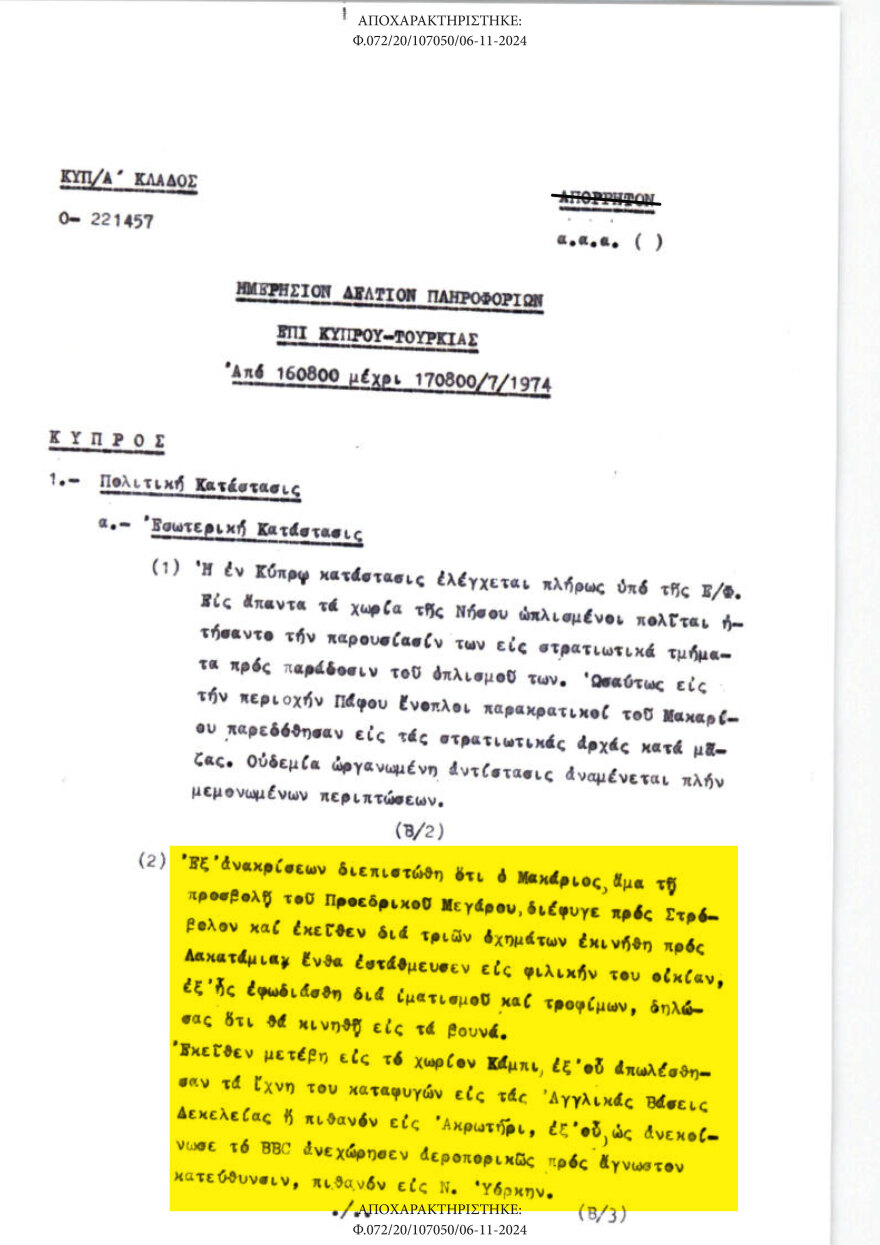
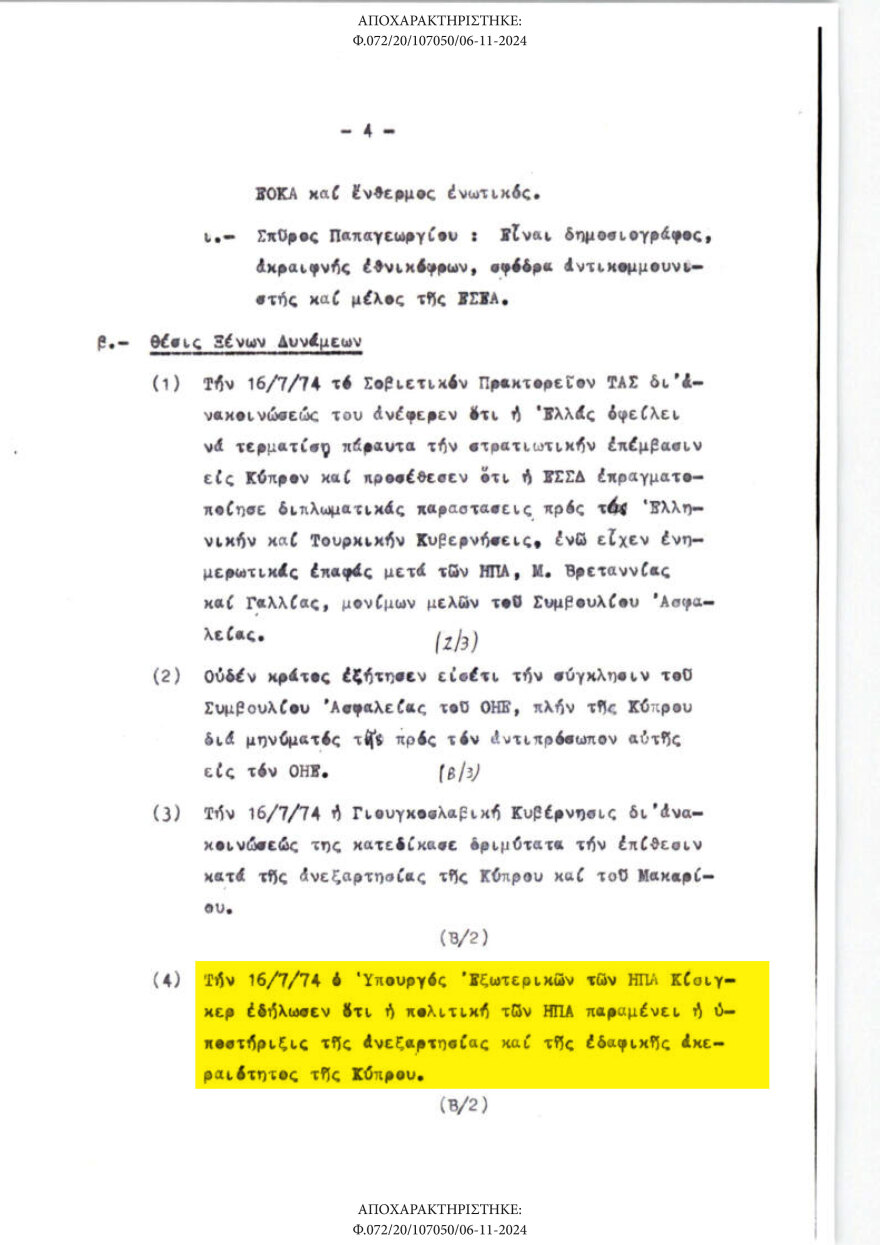
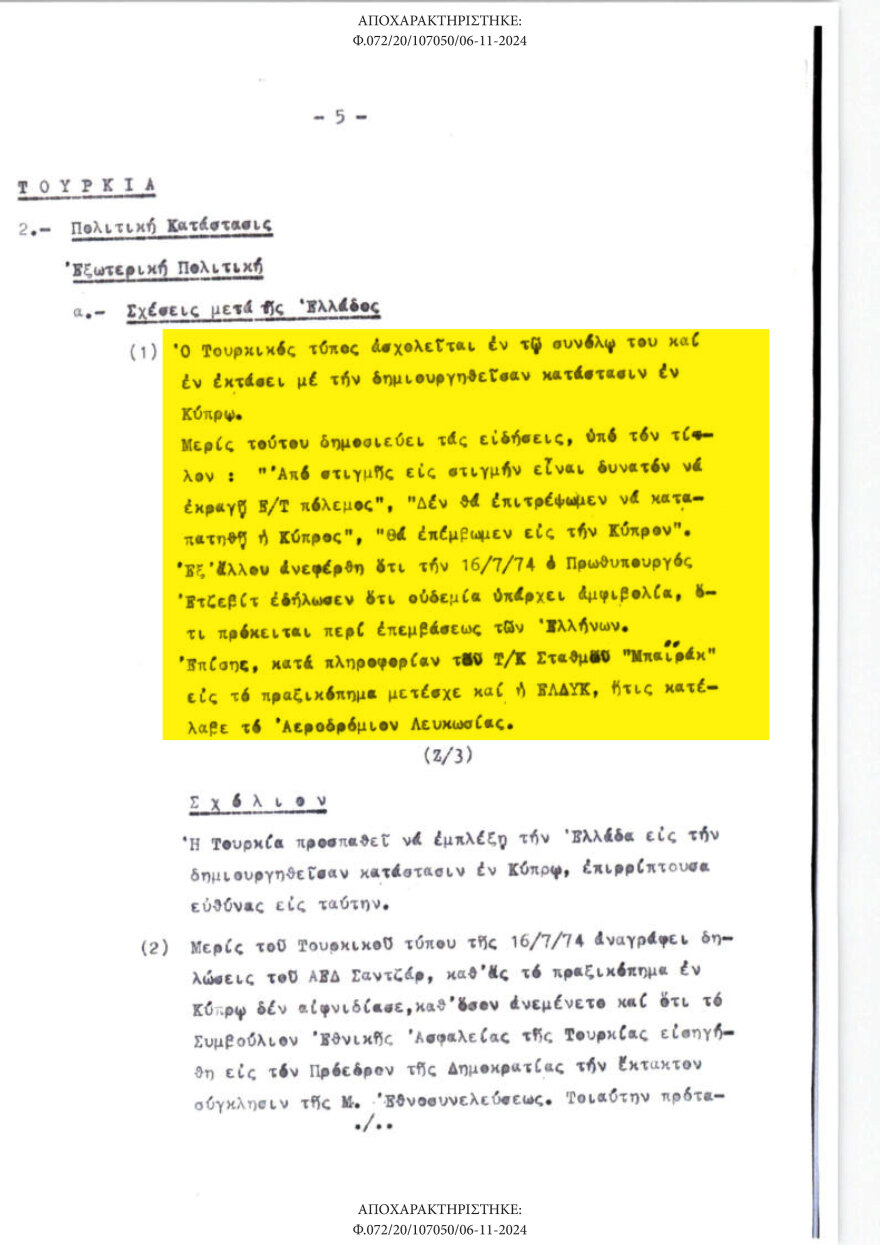
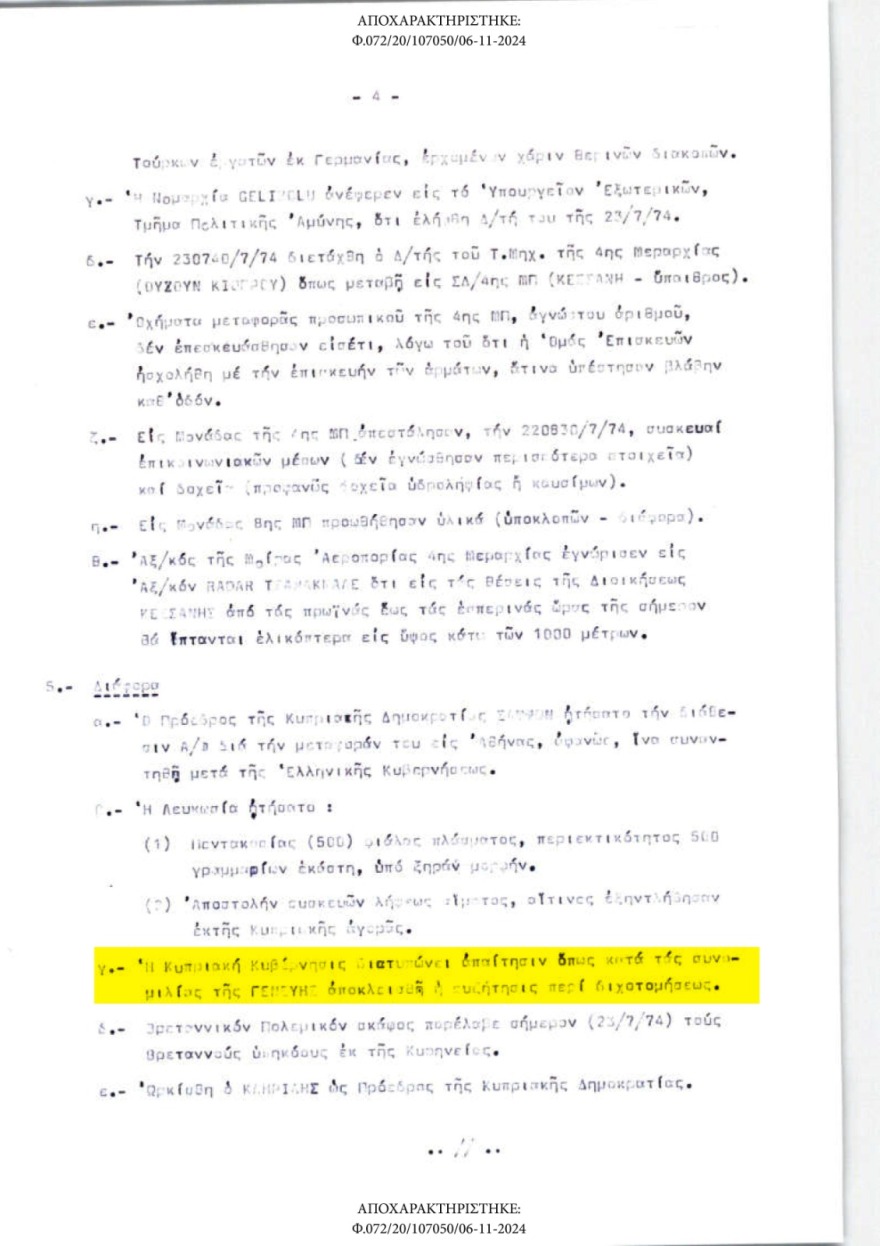
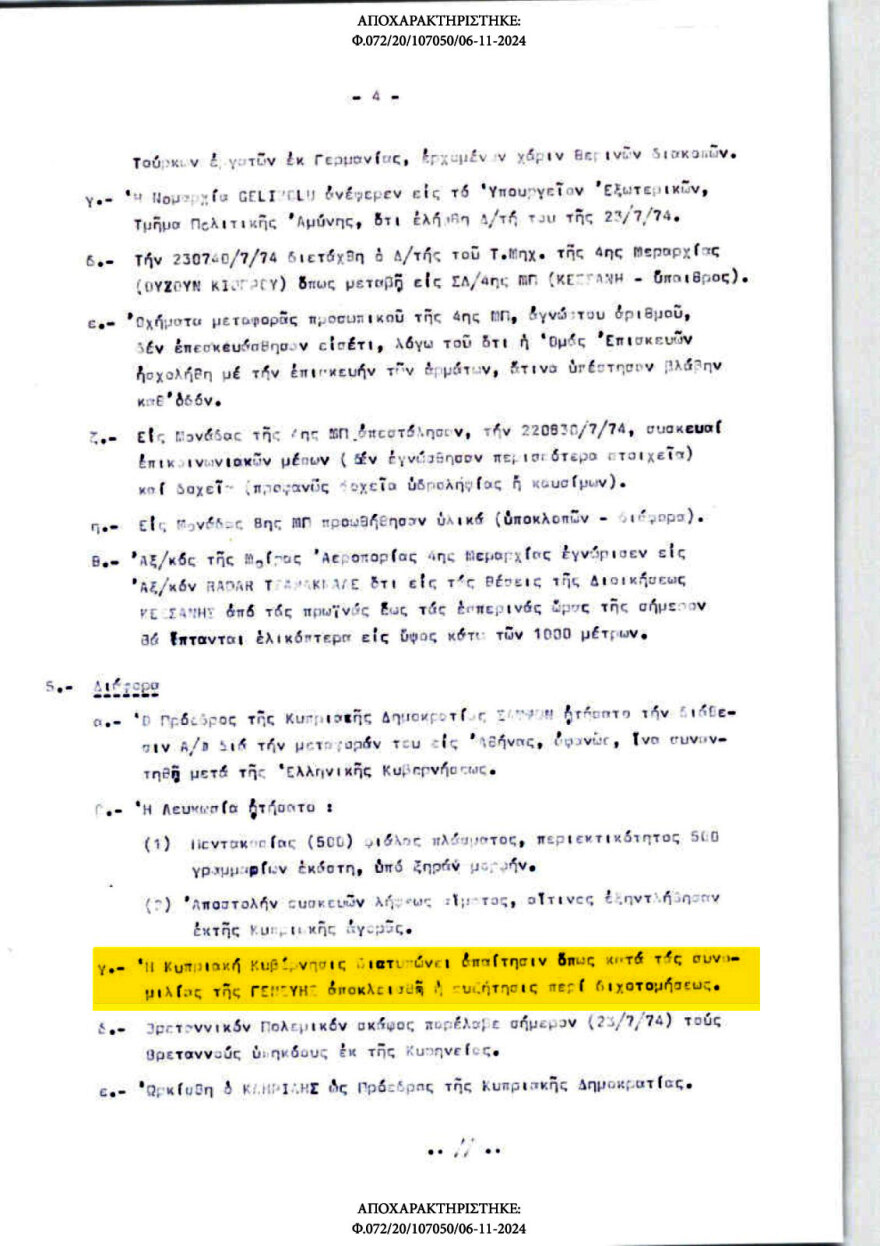
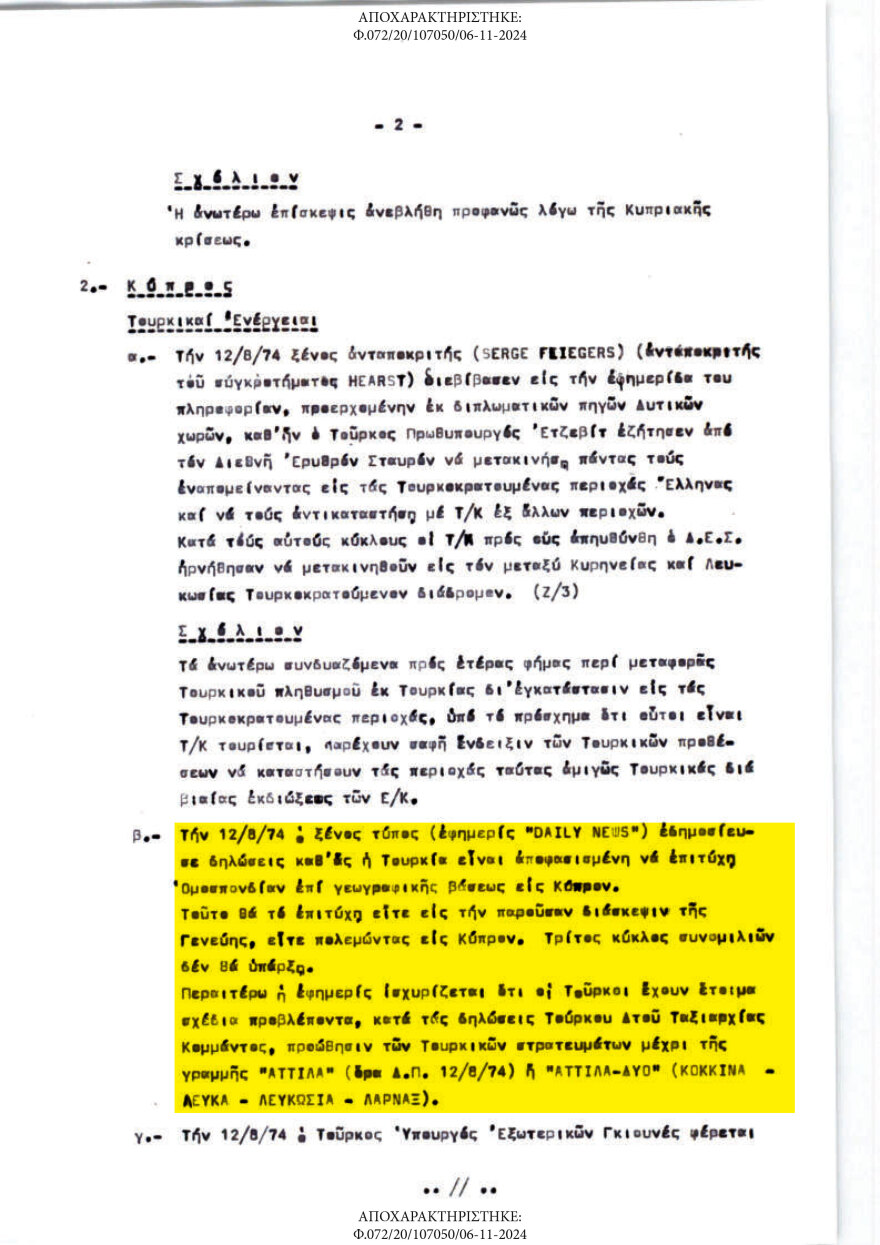
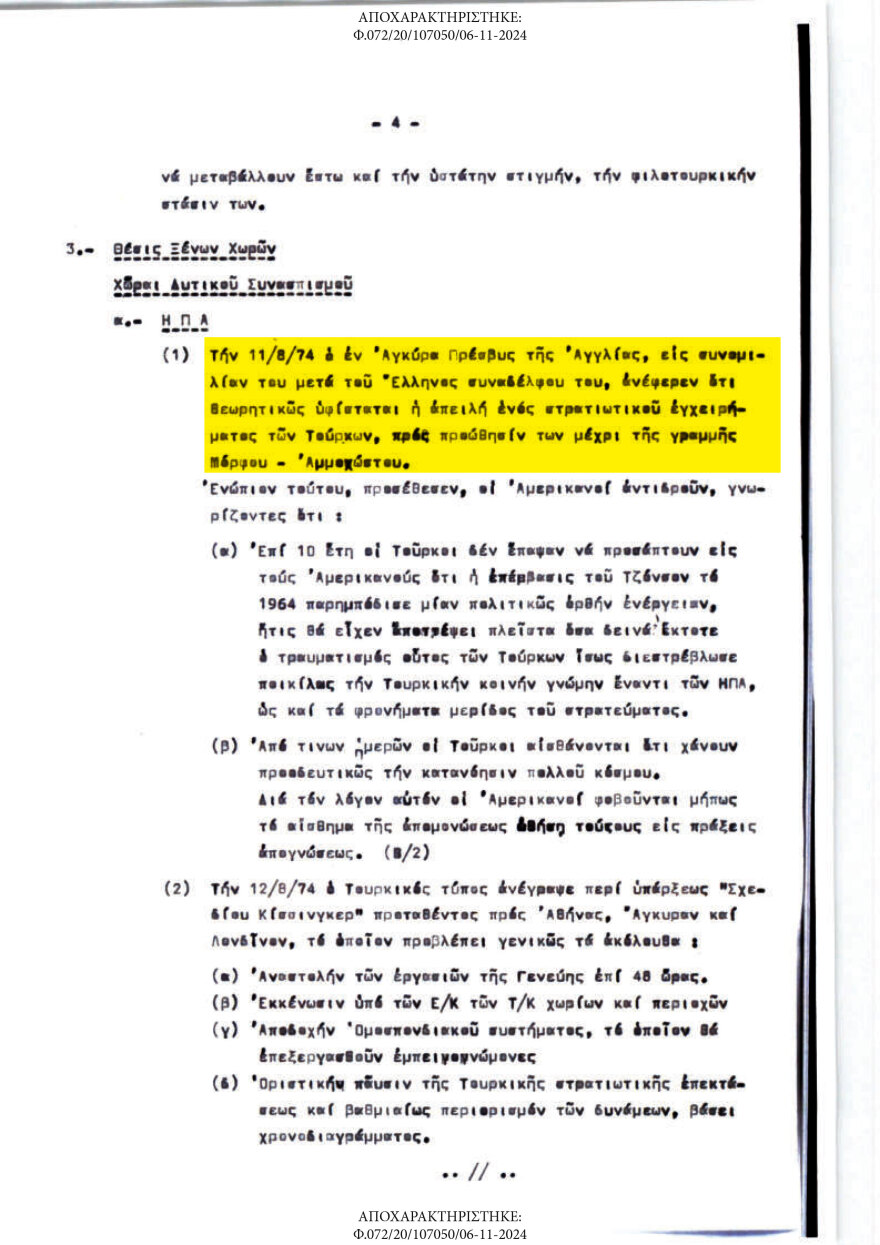
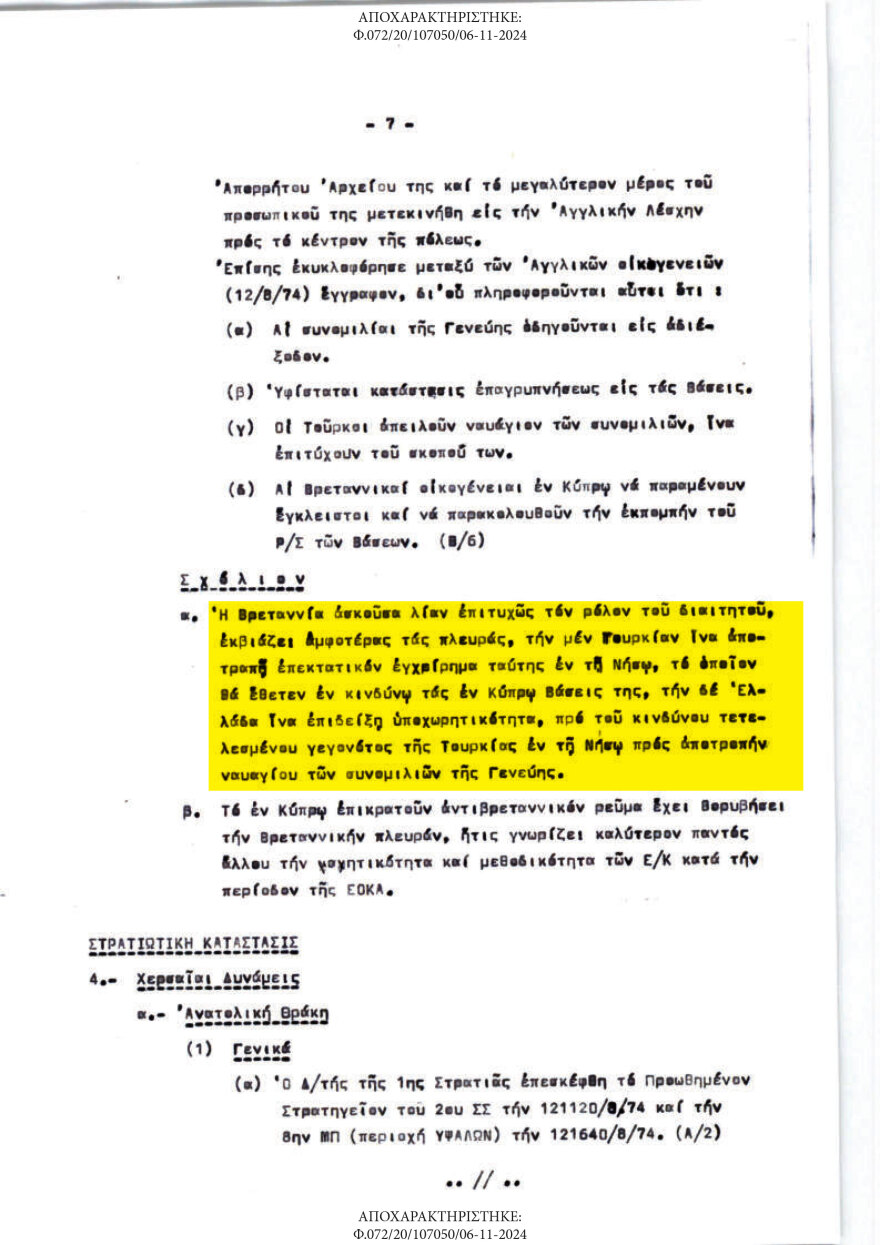
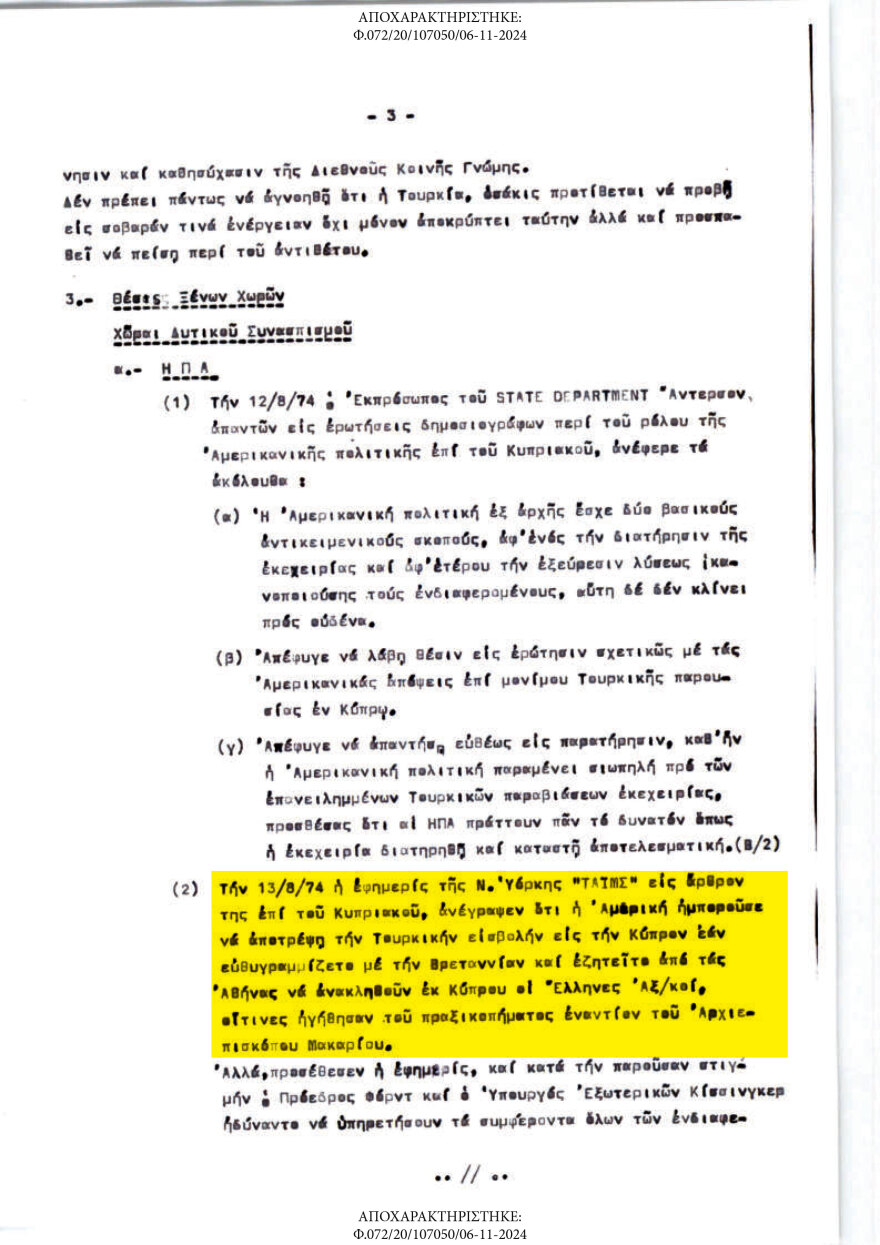
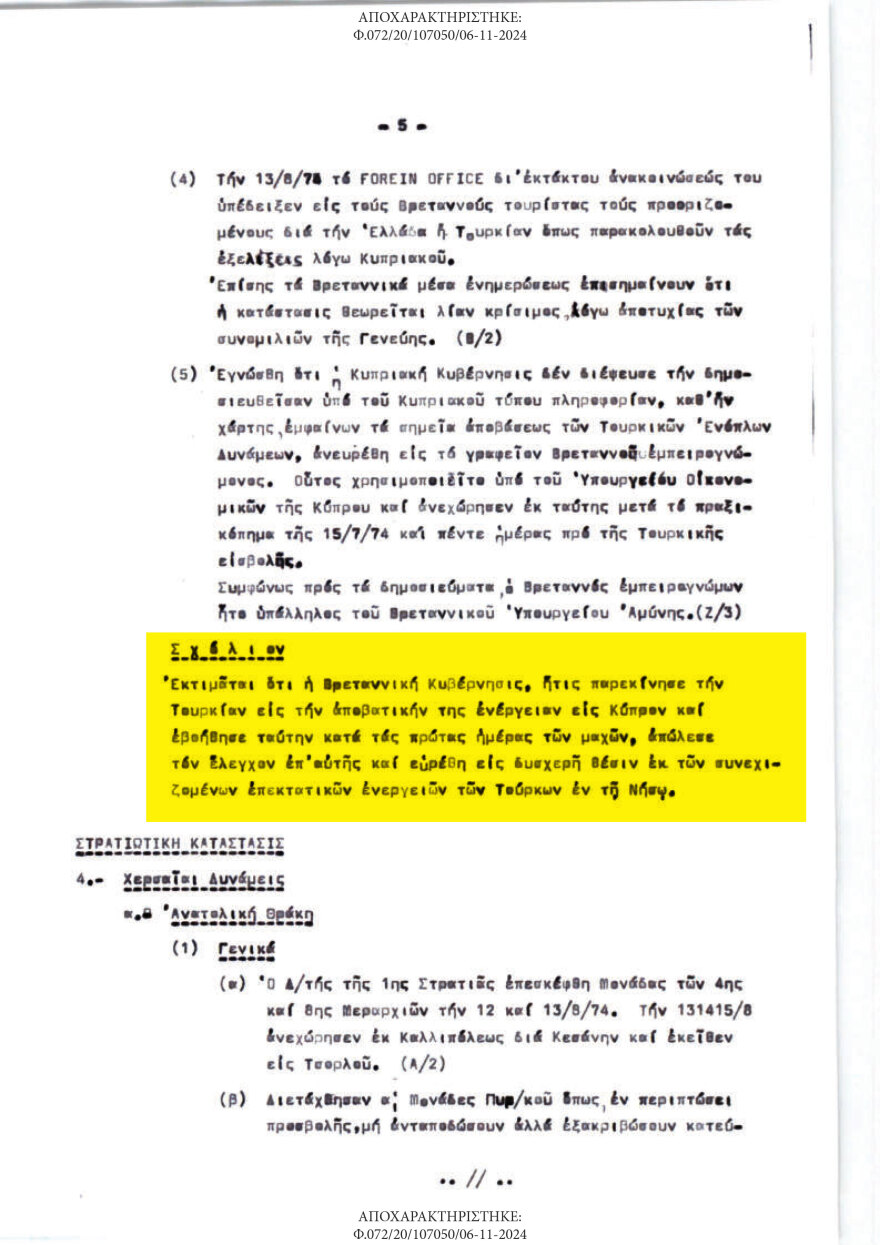
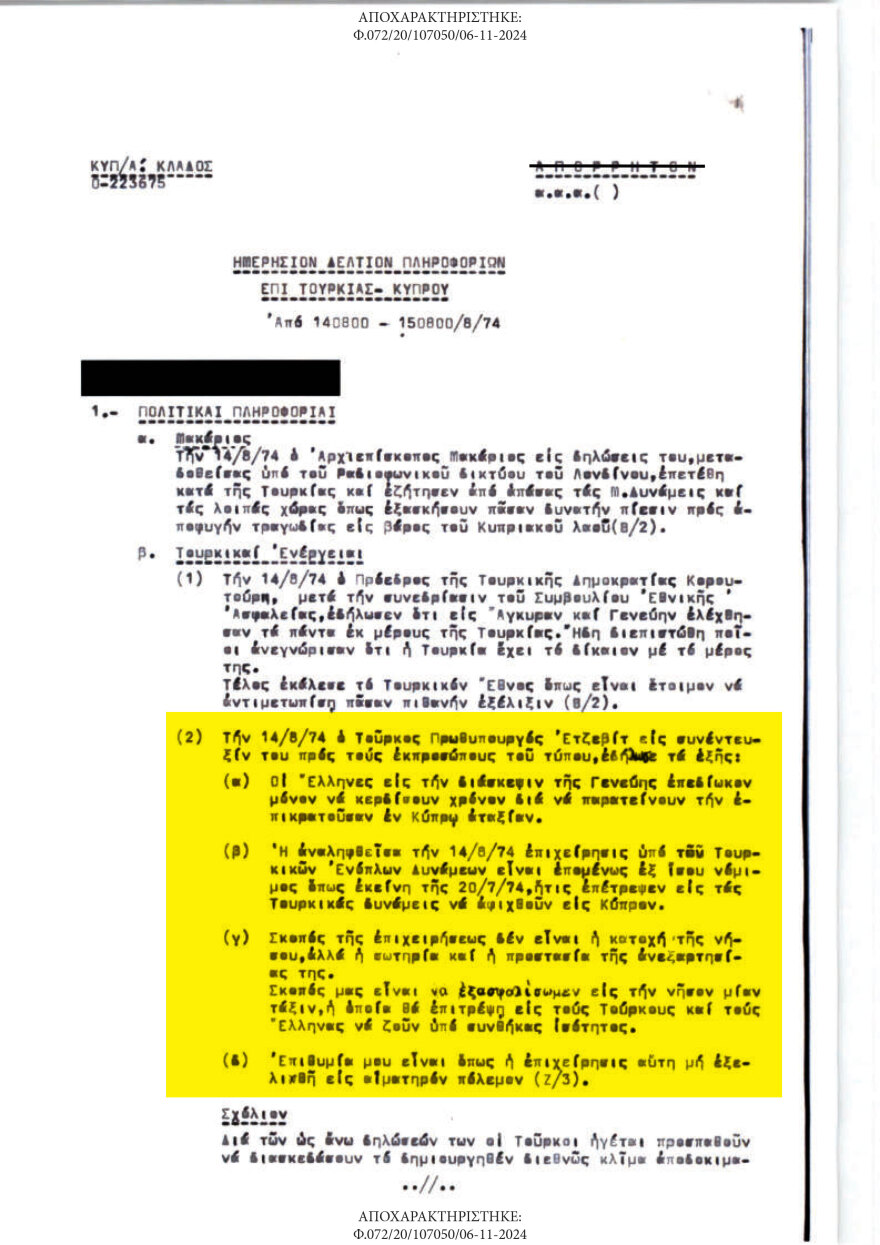
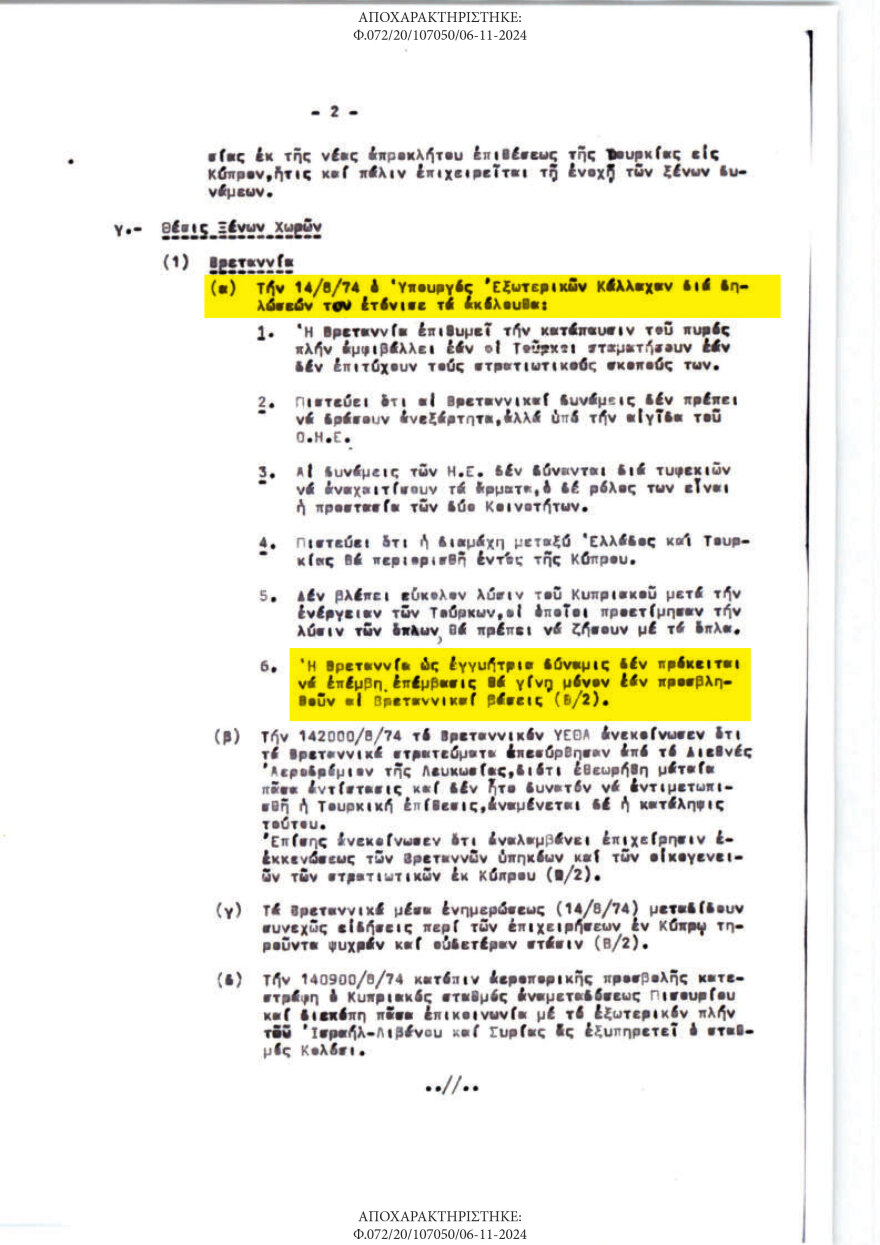
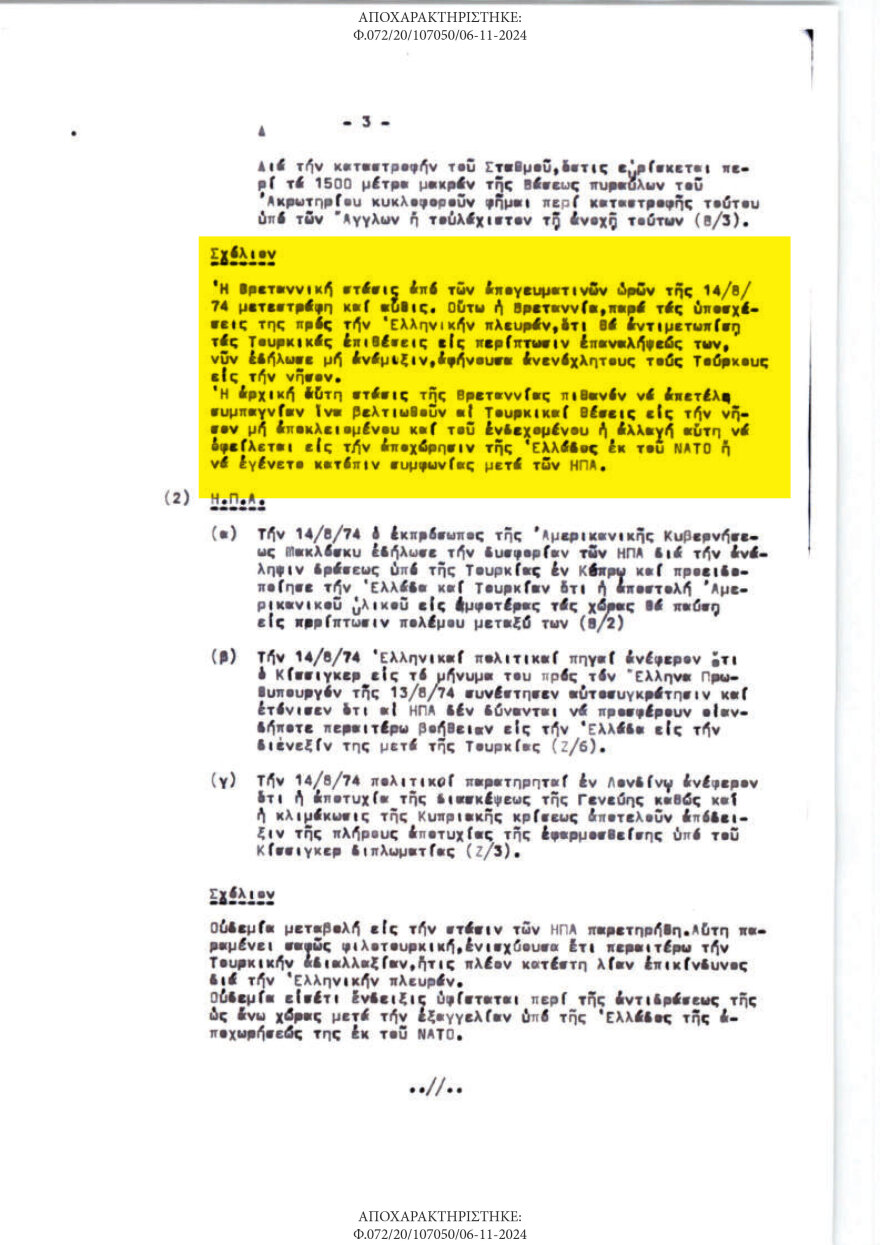
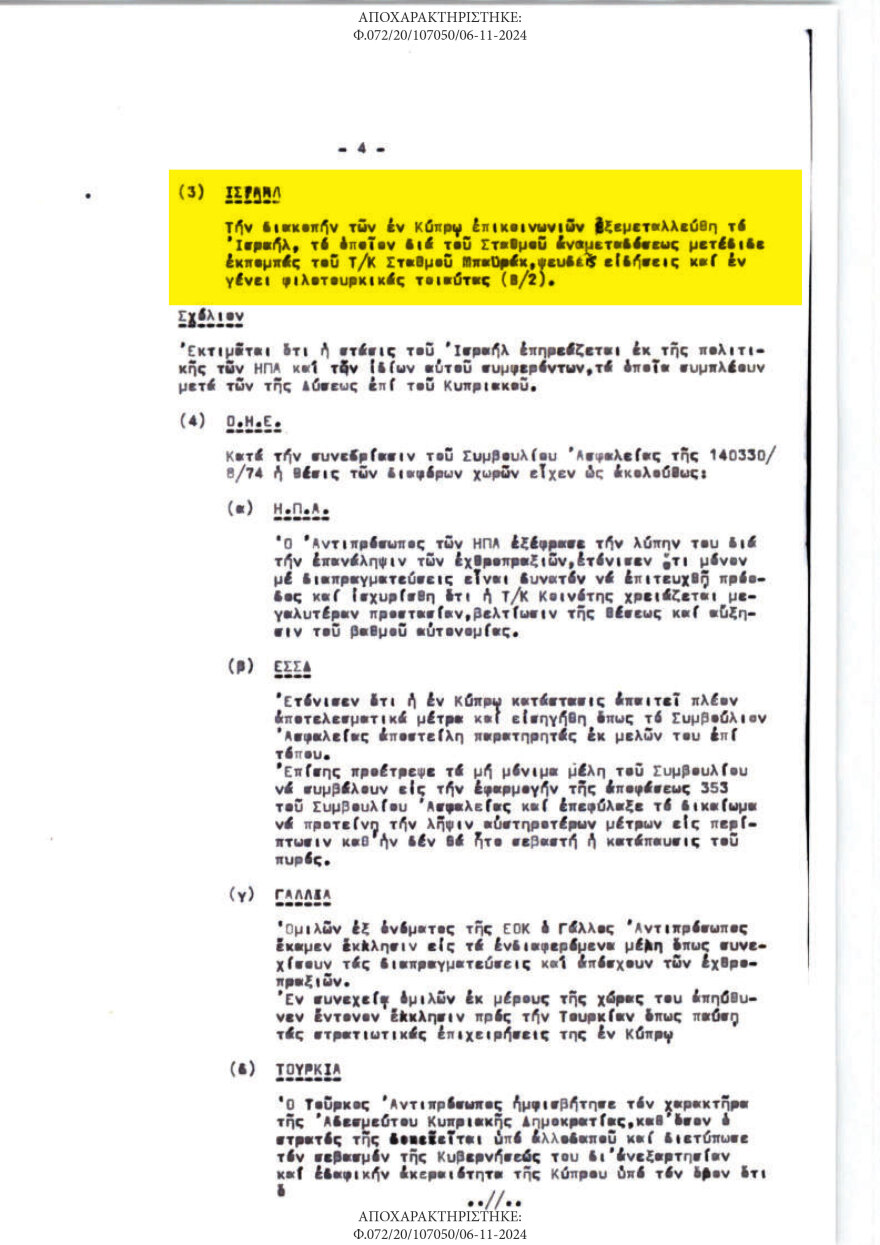
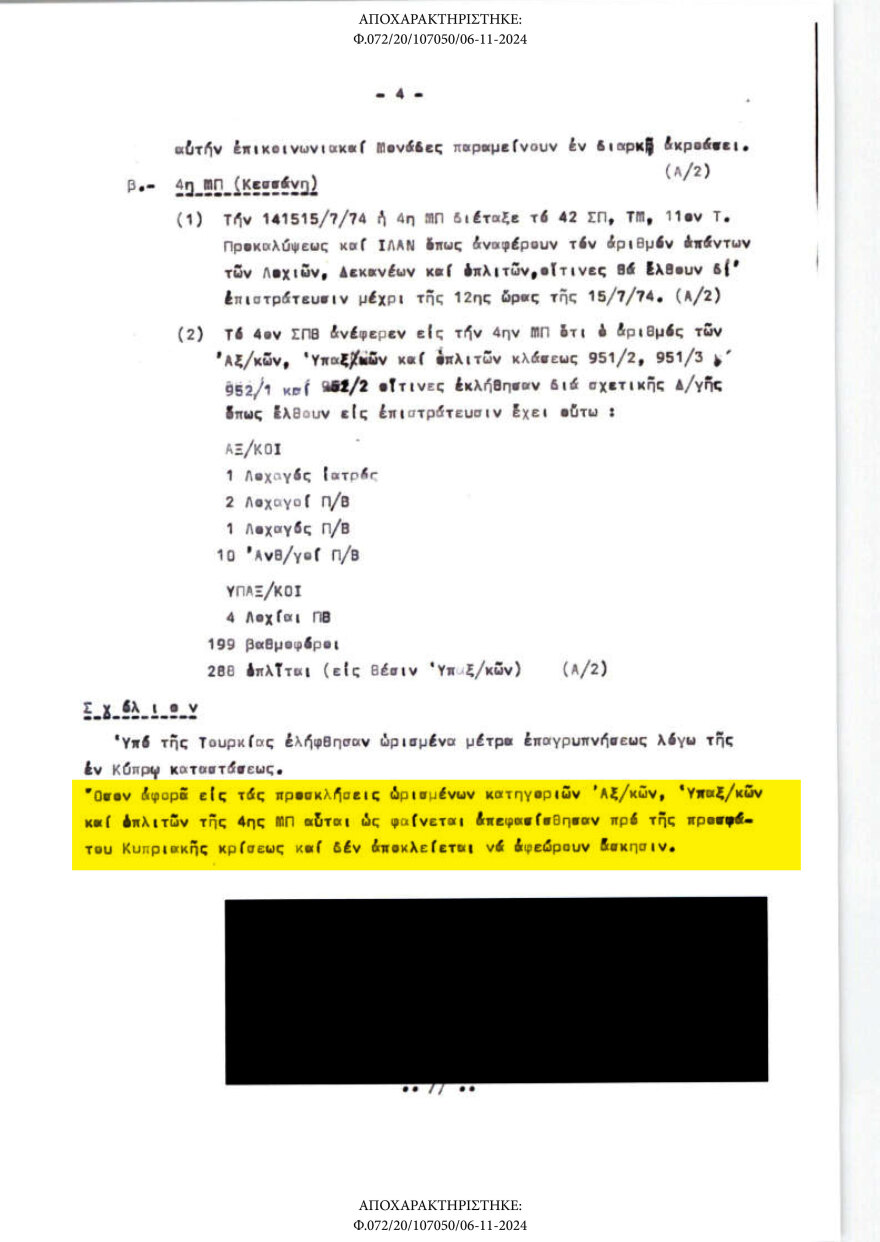
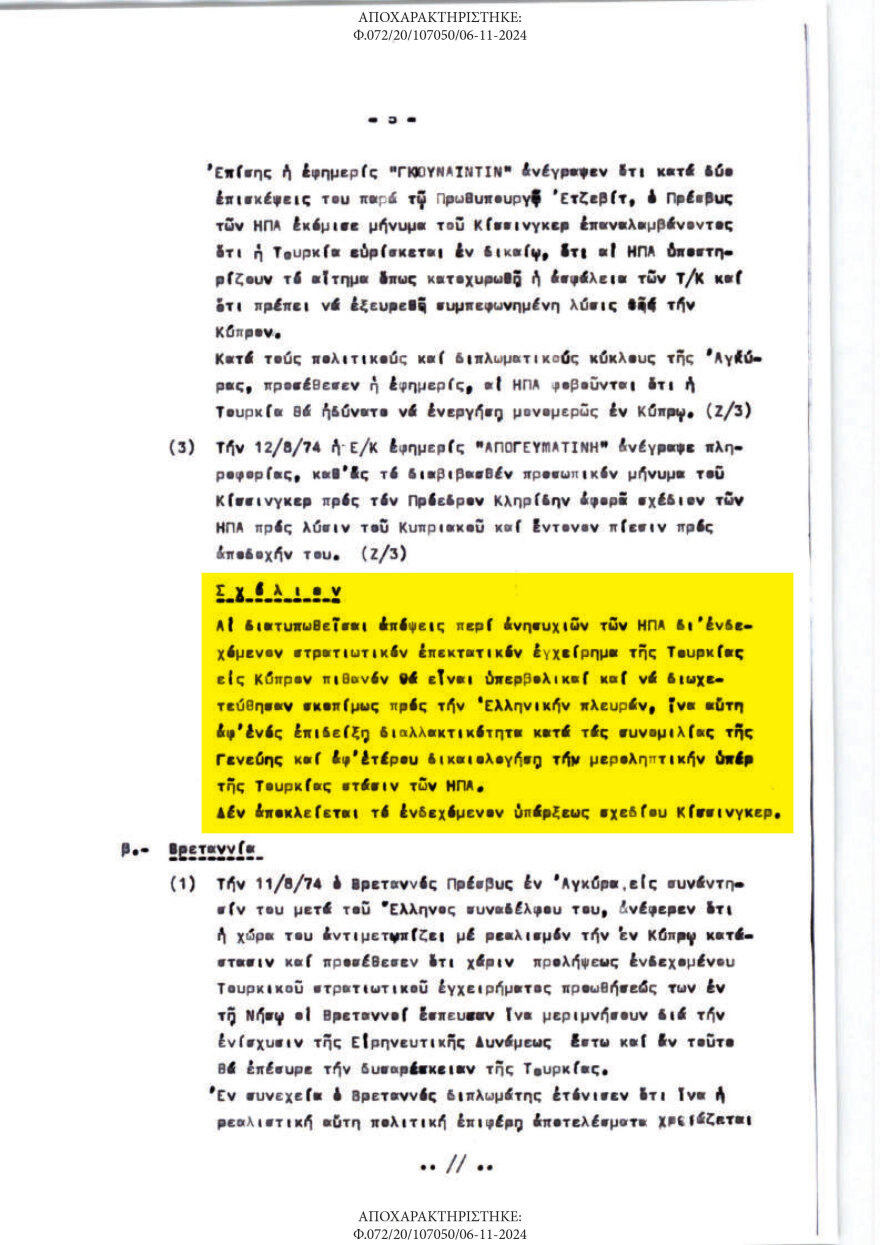
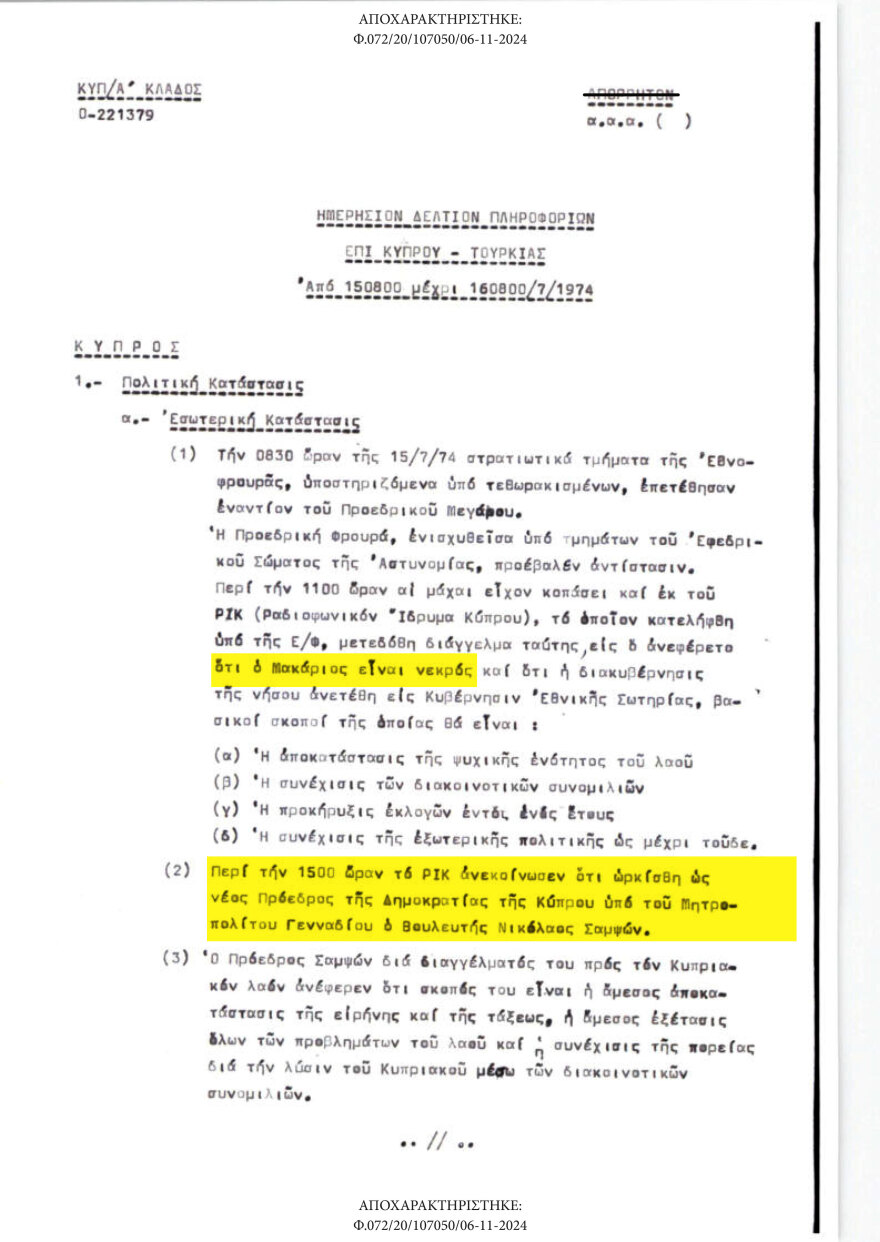
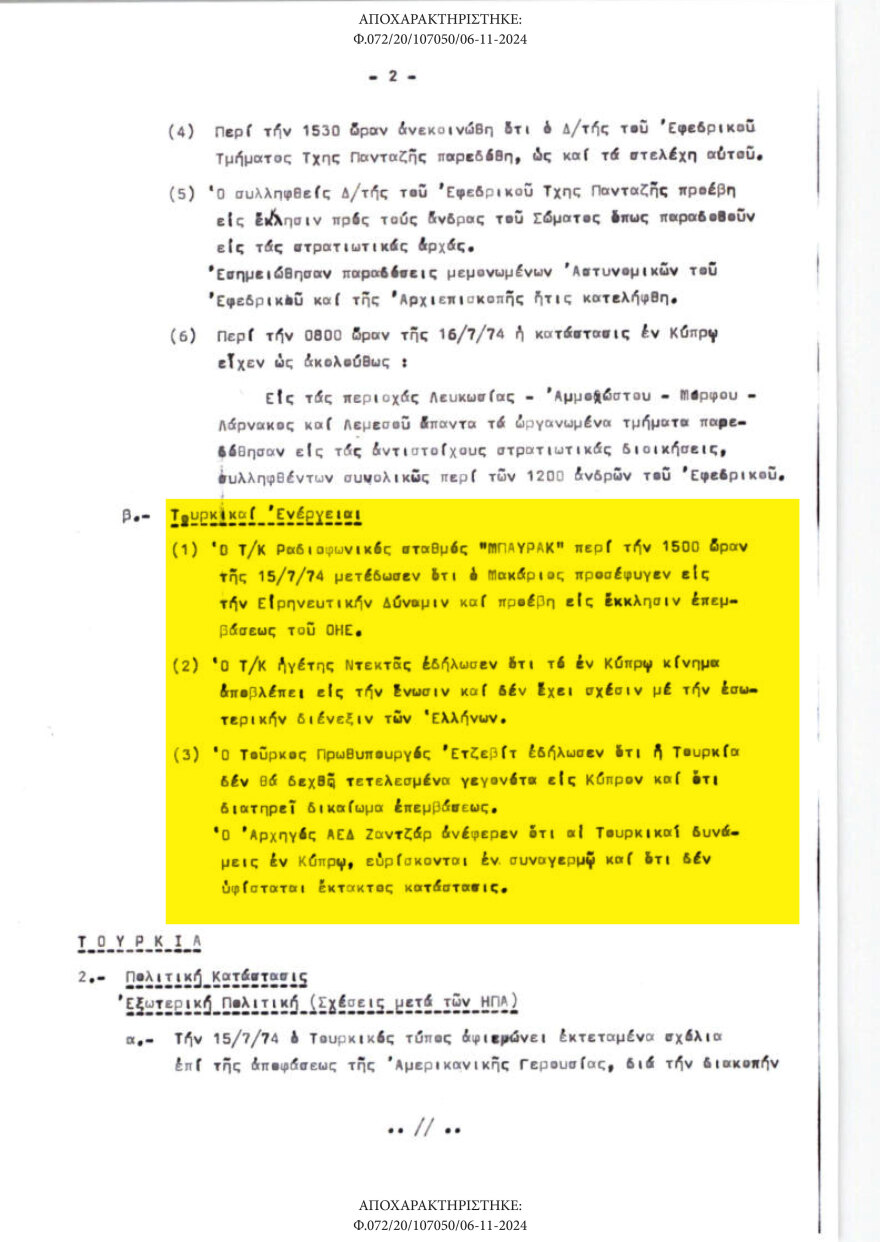
Ask me anything
Explore related questions
